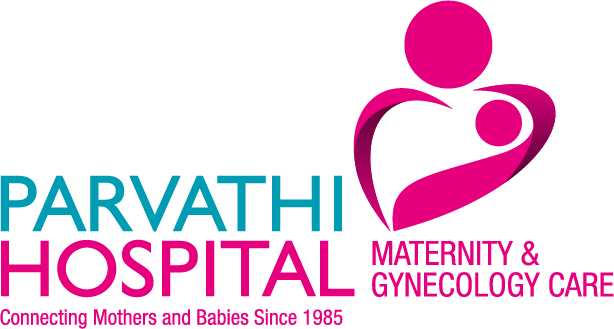Pre-Pregnancy Checklist – 7 Steps to Follow Before Conceiving

It is not too early to start preparing for pregnancy if you are trying to conceive or are just considering it. Preconception health and healthcare emphasize actions you can take before becoming pregnant and between pregnancies to improve the likelihood of having a healthy child. Some women need a few months to prepare their bodies for pregnancy. It can require more time for other women, and the easy part is to visit the best maternity and obstetrics hospital in Hyderabad. The following recommendations will assist you in preparing for the healthiest pregnancy possible, regardless of whether this is your first, second, or sixth child.
Numerous studies show that the prenatal environment affects a child’s future health. For instance, our meals, medications, parental fitness, and environmental exposure to chemicals are all associated with diseases in infants, such as eczema, allergies, asthma, and diabetes. Therefore, experts strongly suggest that women (and their partners) spend at least three months focusing their attention on preparing their bodies before they start trying to conceive.
A Helpful Pre-Pregnancy Checklist for You
You have undoubtedly considered your goals for having or not having children, as well as how to achieve them, whether or not you have written them down. For instance, you used efficient birth control measures to meet your objectives if you didn’t want to have children. Now that you’re thinking about getting pregnant, you must take the necessary steps to achieve your pregnancy goal and have a healthy baby!
You’re now prepared to become pregnant. Congratulations! Choosing to seek a child is a significant life milestone. But is your body prepared for childbirth? Here is a checklist you need to prepare for conception.
Consult Your Doctor
Consult your doctor by visiting the Best Gynecology Hospital in Hyderabad about preconception health care before trying to conceive. First, the doctor talks to you about your medical history and any illnesses you are presently dealing with that might impact your pregnancy. Additionally, they will speak with you about any issues you may have had with past pregnancies, medications you are presently on, any immunizations you may require, and steps you can take before getting pregnant to avoid specific congenital disabilities.
Get Moving
Consider ways to prepare your body and life for your little one before you begin naming your baby and decorating the nursery. Get in shape to simplify your pregnancy and delivery (even though your waist will temporarily disappear). On most days, try to get in 30 minutes of heart-pumping activity. Exercise options include swimming, biking, and walking. Or enroll in a class for prenatal exercise. Try workouts like jogging, cycling, or mountain hiking if you want a better challenge. Physical activity has additional positive effects on your health. If you already lead a somewhat active lifestyle, you can try exercising for 150 to 300 minutes per week.
If you smoke, consume alcohol, take certain drugs, reside in a hostile or abusive environment, work with or live near toxic materials, consult your doctor or health care provider. You can get therapy, treatment, and other forms of support from medical specialists.
Take Folic Everyday
It aids in preventing significant birth abnormalities that may develop before a woman becomes pregnant. Many foods, such as leafy greens, citrus, and beans, contain this B vitamin, but most women need to take a tablet to acquire it sufficiently. Initially, take a daily vitamin. Four hundred micrograms of folic acid, the recommended daily intake in most multivitamins, are required when trying to conceive.
To avoid neural tube abnormalities in the early stages of pregnancy, you might need to take an additional folic acid or folate supplement in addition to your prenatal vitamin. This quantity is already included in several over-the-counter prenatal supplements. Verify the label and be sure. Your gynecologist doctor might recommend prenatal vitamins with a higher dosage once you’re pregnant.
Eat Well
Eating a balanced diet can also provide the vitamins and minerals required. For example, choose whole foods over processed ones. To reduce your exposure to pollutants, you might also wish to increase your consumption of organic fruits and vegetables. You’ll get an ice cream and pickle craving soon enough. Now concentrate on eating healthfully. Protein, iron, calcium, and folic acid will be necessary—stock up on low-fat dairy products, leafy greens, almonds, fruits, and vegetables. Reduce your drink intake, baked goods, chips, and other processed items with empty calories. For ease, ask your partner to join you.
See Your Dentist
If you don’t normally floss, you should start doing so immediately—both the mother and baby benefit from it. In addition, gum disease is a health issue that is increased risk during pregnancy and may increase the likelihood of early labor. Therefore, brush, floss, and rinse with an antimicrobial mouthwash daily and have your teeth cleaned and examined. Periodontal disease and poor dental hygiene have been linked to pregnancy issues like preterm birth. Before conception, routine dental cleanings and treatment are advised.
Quitting is Good
Making a plan to stop smoking, vaping, using marijuana, and using illegal substances is smart. Additionally, you should restrict your alcohol intake and reduce your daily caffeine intake to 200 mg. These can have an impact not just on you and your unborn child while you are pregnant but also on your ability to become pregnant.
If you smoke, consume alcohol, take certain drugs, reside in a hostile or abusive environment, work with or live near toxic materials, consult your doctor or health care provider. You can get therapy, treatment, and other forms of support from medical specialists. Alcohol usage during pregnancy is known to cause fetal alcohol syndrome. Smoking, vaping, and using THC while pregnant might result in preterm birth and low birth weight.
Learn Your Family History
You need genetic or fetal medicine specialist consultation if you, your spouse, or any other close relatives (parents, brothers, sisters, aunts, and uncles) have a history of birth abnormalities or inherited medical illnesses. In that case, you may have a higher chance of having a baby with the same issues. In addition, some miscarriages, baby deaths, difficulty getting pregnant (infertility), a genetic disorder, or a congenital disability that emerged during a prior pregnancy.
Frequently Asked Questions About Pregnancy
Pregnancy brings up many questions, especially for first-time mothers. For example, you might be curious about the early indications of pregnancy, the supplements you should take, or whether you’ll experience any cravings.
Am I pregnant?
A missed period is the first and most certain indication of pregnancy. If you have a regular monthly cycle, your period typically begins four weeks after the beginning of your last period.
When Do Pregnancy Cravings Start?
No particular period marks the beginning of pregnant food cravings. Every woman experiences it differently, so you might not always have desires.
How Much Weight Gain In Pregnancy?
Each person’s pregnancy weight increase is unique. It also depends on how much you weighed before being pregnant.
The Final Word
When you wish to expand your family, there are several things to consider. You may, however, get ready and be on your way to safe pregnancy. The path into pregnancy and beyond involves the two of you. Even though you’ll be carrying the child, your partner is still involved in this procedure. Making a family effort to change your household’s food and lifestyle choices is better for everyone.











